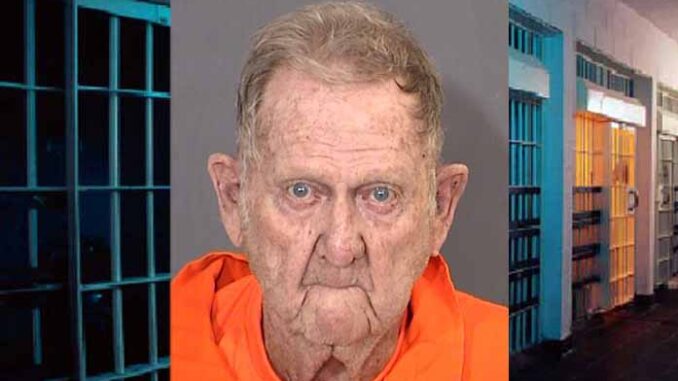
An elderly Cochise County man convicted last year of molesting a family member 15 years earlier failed to demonstrate that he did not receive a fair trial, the Arizona Court of Appeals has ruled.
Edward Lee Thomas, now 84, is serving a 53-year prison sentence after being convicted by a jury of three counts of child molestation for offenses between 2005 and 2006. The family member was under the age of 15 at the time.
Thomas was originally investigated by the Cochise County Sheriff’s Office in 2007 and reportedly confessed to a sheriff’s detective in 2009 about the molestation. But the case was not referred for prosecution at the request of the child’s mother.
In 2018, the now adult-aged family member inquired about the matter. She learned that charges could still be filed, as Arizona has no statute of limitations for prosecuting sexual abuse of children. However, by the time Thomas was indicted by a county grand jury in 2019 some key pieces of evidence could not be located.
It turned out that the sheriff’s office received a destruction of evidence order years earlier from the Cochise County Attorney’s Office. The order intended to authorize destruction of evidence in another investigation, but incorrectly referenced the report number for Thomas’s investigation.
The destruction of evidence was a key element of Thomas’ unsuccessful attempt to get the case dismissed prior to trial. The defense had also argued that the years-long delay in prosecuting the case violated Thomas’ due process rights. Judge Timothy Dickerson of the Cochise County Superior Court, however, ruled that considering there was no statute of limitations, Thomas had not met his burden of proving a due process violation.
On appeal, Thomas argued that Dickerson’s ruling was an abuse of judicial discretion as the pre-indictment delay violated his right to be protected from unreasonable delay in prosecution. Thomas also argued his right to cross-examination was prejudiced because he could not confront the family member with her prior “potentially exculpatory” statements from a 2007 interview that was among the destroyed investigative evidence.
But the court of appeals affirmed Dickerson’s various rulings.
“Even assuming there was intentional delay by the state, Thomas’s claim fails because he has not shown actual prejudice,” Presiding Judge Karl Eppich wrote in the unanimous appellate decision. He added that Thomas’ other claim about the destroyed evidence being potentially exculpatory “is speculative, not apparent.”
The Eppich’s decision also notes Dickerson further mitigated any potential prejudice to Thomas by issuing a jury instruction over the objection of the State prior to deliberations. The instruction told jurors that if they believed the State had “lost, destroyed or failed to preserve evidence whose contents or quality are important to the issues in this case, then you should weigh the explanation, if any, given for the loss or unavailability of the evidence.”
Of the jurors found any such explanation to be “inadequate, then you may draw an inference unfavorable to the State which itself may create a reasonable doubt as to the defendant’s guilt.”
Another element of Thomas’ appeal concerned a very brief comment at trial by the family member about abuse she alleged Thomas committed outside of the dates of the indicted offenses. Dickerson immediately instructed jurors to ignore that line of testimony and later denied a defense motion for a mistrial, both of which the appellate court affirmed.
“Limiting instruction aside, we cannot say there is a reasonable probability the verdict would have been different had [the victim] not offered the improper testimony,” Eppich wrote. “Her precluded testimony was short and relatively general. Although she referenced reporting more than three instances of abuse, she did not provide any details as to those other incidents, diminishing the likelihood the remark improperly influenced the jurors.”
Thomas’ release date is listed by the Arizona Department of Corrections as March 2071, which includes another two years for the sexual abuse of a different family member in 2002. For now, Thomas is housed in an ADC special needs unit.

